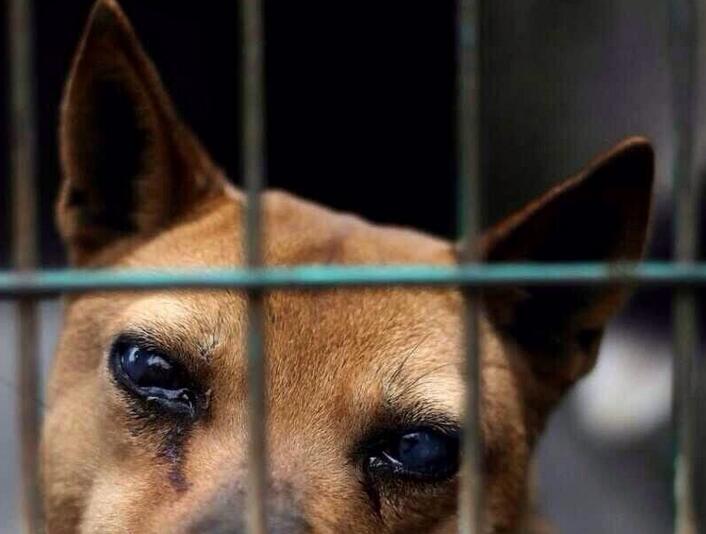China's dog meat debate
- By Annie O'Hanlon
 0 Comment(s)
0 Comment(s) Print
Print E-mail China.org.cn, June 20, 2016
E-mail China.org.cn, June 20, 2016
Summer is nearly here, the solstice set for June 21st; but while some are preparing for the season by clearing out their winter wardrobes and others are filling their ice cube trays, one Chinese city – Yulin, in Guangxi Province – is getting ready for the Lychee and Dog Meat Festival.
 |
|
China's dog meat debate |
The 10-day event has been held annually since 2009, and is organised by a group of local people. It is estimated that approximately 10,000 dogs are served at the festival every year, although according to Business Insider, those numbers have been falling since 2014.
Many countries, including South Korea, Vietnam, and even Switzerland have come under scrutiny in the past regarding their taste for "man's best friend;" but China's current position in the global spotlight has led to a heated debate, not so much about the rights or wrongs of eating dog meat, but more about the alleged illegality of how the dogs are sourced, and about the conditions they are kept and slaughtered in.
Reactions to the Dog Meat Festival on international social networks include insults aimed directly at Chinese people, calling them "disgusting" and "barbaric," but others respect these differences in cultural and religious norms. Something that many Western media producers and consumers are unaware of is that most Chinese people are just as unlikely to eat dog meat as people in western countries.
According to Channel News Asia, this year, "more than 8.6 million Chinese citizens voted online in support of a legislative proposal to ban the dog and cat meat trade, the highest number of votes for any proposal open to the public."
Chinese animal rights activists have been fighting to ban the Dog Meat Festival since it first began, but it didn't take long for the movement to catch the attention of the rest of the world. For the past few years, global campaign networks have put together petitions, urging the relevant parties to re-assess how they regulate the dog meat industry.
However, some people have stepped forward to fight for their right to eat dog meat. Yang Shuo, a driver from Guangxi Province said, "People need to respect each other's preferences. The foreign media will always find something to criticize."
Others have suggested that many of those who have signed petitions to put a stop to the Dog Meat Festival are meat-eaters themselves, but regard the consumption of dog meat to be completely unfathomable. Rose Yang, a Beijing-based office worker from Inner Mongolia said, "The global reaction to the Chinese dog meat industry is an example of '五十步笑百步,' translated roughly as two groups making the same choice, but one group taking the choice further and becoming a laughing stock for it."
Carolina Rodrigues, a Portuguese filmmaker living and working in China, said that she hopes the Chinese government will close down the festival in an effort to protect the country's image; but she also showed an understanding of the cultural differences that make the festival so shocking to those from overseas, saying, "In my opinion, there's no big difference between eating dogs or pigs. The main differences are cultural or religious - Hindus don't eat cows, Japanese people eat horses, and Asians eat dogs. Western people consider dogs to be man's best friend… they have long been our companions and protected our families. Asian people only recently started to see dogs as pets."
It is common knowledge in Yulin that many of the dogs served at the Dog Meat Festival are stolen from their owners before being sold on the black market. So, what is the appeal of eating dog meat? In Yang Shuo's opinion, "Dog meat tastes sweet. Compared to other meat, it is also stronger-smelling and more filling. It is a local custom… Most of us know that the dogs are stolen. For that reason, I don't eat dog meat very often, but it's good to have it sometimes."
Something that Yang Shuo was unaware of, however, was that the dog meat served in Yulin, which many believe can fend off illness and bad luck, could potentially have the opposite effect. Quan Xinbin, an official at the Yulin Disease Prevention Center, told Dongfang Daily that about 9 percent of all dogs in the city carry the rabies virus. When Yang Shuo heard this statistic, he reacted by saying "None of us have ever heard anything about that before. I had never even considered that any of the dogs I have eaten in the past might have been sick."
As summer will officially begin tomorrow, there is still no clear sign as to whether or not the Lychee and Dog Meat Festival will go ahead as planned, or be brought to a halt by officials or protesters. With the whole world watching, the next steps taken in Yulin are bound to have an impact on China's international image.






Go to Forum >>0 Comment(s)